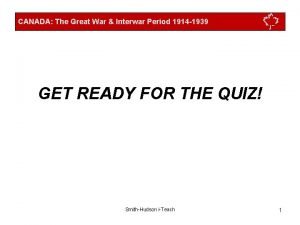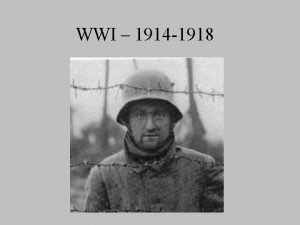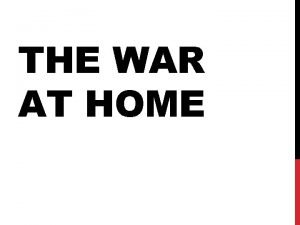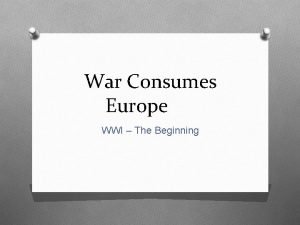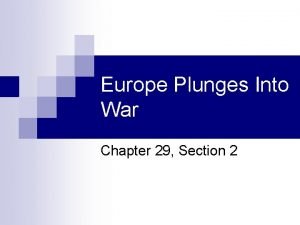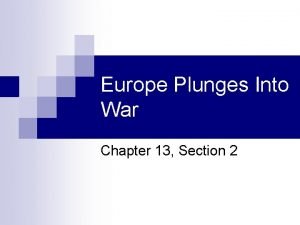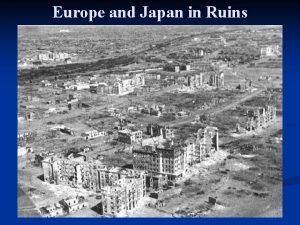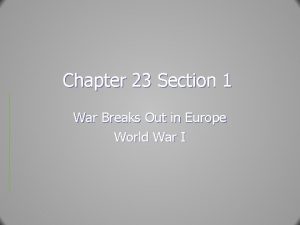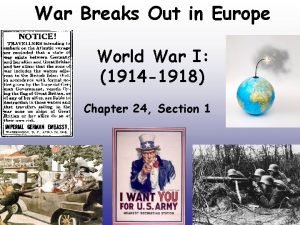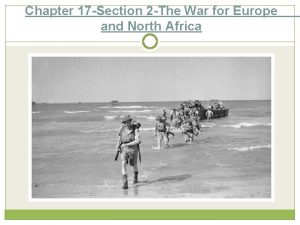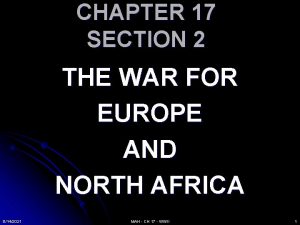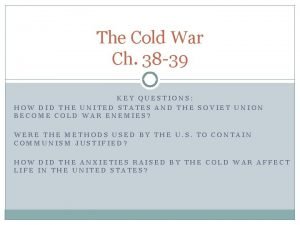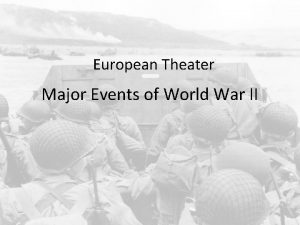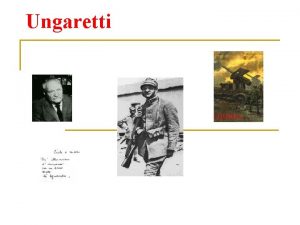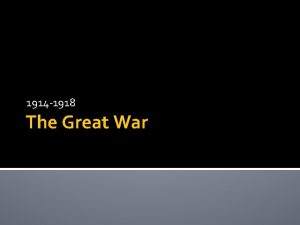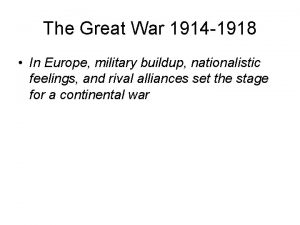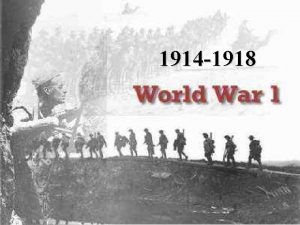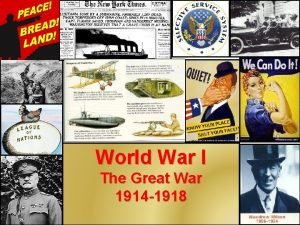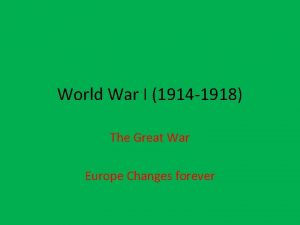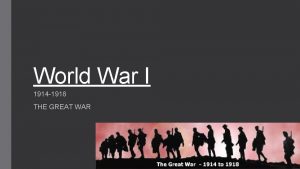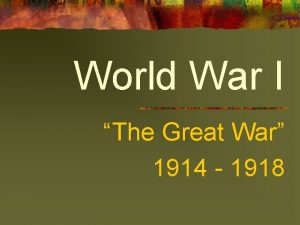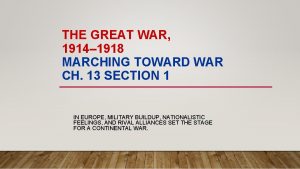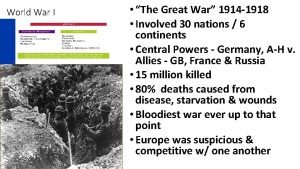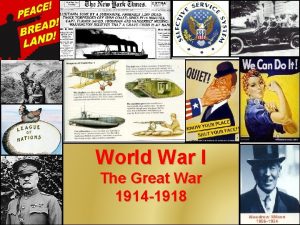The Great War 1914 1918 In Europe military
















- Slides: 16

The Great War 1914 -1918 • In Europe, military buildup, nationalistic feelings, and rival alliances set the stage for a continental war

Militarism • Policy of glorifying military power and keeping an army prepared for war – Having a large, strong standing army made citizens feel patriotic – Others were frightened by the potential disturbance of peace

Militarism cont. • ~ European nations believed to be truly great, they needed a powerful military, leading to the rise of a dangerous European arms race… • by 1914→ all powers had large standing armies – EXCEPT Great Britain • Military experts stressed the importance of being able to quickly organize and move troops in case of war – Generals in each country developed highly detailed plans for such mobilization

ALLIANCES • Growing rivalries and mistrust had led to the creation of several military alliances among Great Powers • Designed to keep peace in Europe→ instead it helped push the continent into war

1. The Alliance System Triple Entente: Triple Alliance:

Alliance System • Serbian assassins kill Franz Ferdinand (heir to the Austro-Hungarian thrown) • Austria-Hungry declares war on Serbia • Russia (allied with Serbia) declares war on Austria-Hungry • Germany (allied with Austria-Hungry) declares war on Russia first, then France • When German troops cross Belgium to get to France, Great Britain (allied with Belgium) declares war on Germany

Nationalism • Nationalism→ deep devotion to one’s nation; can serve as a unifying force within a country • Can also cause intense competition among nations, with each seeking to overpower the other • France: longed to regain its position as Europe’s leading power; wanted to recover provinces lost to Germany in Franco-Prussian War 1870 (Alsace & Lorraine) • Germany: Proud of empire’s new military & industrial might

Nationalism • Russia: Russian duty to lead & defend all Slavs • Balkans: Rising nationalism in multinational empires (Austria-Hungary & Ottoman Empire) “Balkan Powder Keg” • Serbia- hoped to absorb Slavic population on the Balkan Peninsula-Russia supported • Austria-Hungary→ opposed it, fearing that efforts to form a Slavic state would stir rebellion amongst its own Slavic population

Pan-Slavism: The Balkans, 1914 The “Powder Keg” of Europe

Imperialism • ~ European powers continued to compete for colonization in Africa and Asia… • Push for imperialism often pushed European nations to the brink or war – sense of rivalry and mistrust of one another continued to deepen

European Imperialism in Africa

ASSASSINATION • A Shot Rings Throughout Europe: • ~ Amidst all this turmoil in Europe, Archduke Franz Ferdinand his wife, Sophie, visit Sarajevo, the capitol of Bosnia to inspect army maneuvers… • June 28, 1914→ after escaping an attempt on their life through a bomb…the couple can’t escape death twice and were shot dead • Gavrilo Princip→ 19 -year old Serbian assassin • Member of the Black Hand→ secret society committed to ridding Bosnia of Austrian rule

The Assassination: Sarajevo

The Assassin: Gavrilo Princip

Who’s To Blame?

• *The countries of Europe followed through on their pledges to support one another. As a result, nearly all of Europe soon joined what would be the largest, most destructive war the world has seen yet.
 1914 1918
1914 1918 Eastern front ww1 map
Eastern front ww1 map Map of europe 1914
Map of europe 1914 Who reorganized the war industries board in 1918
Who reorganized the war industries board in 1918 War consumes europe
War consumes europe Europe plunges into war chapter 29 section 2
Europe plunges into war chapter 29 section 2 Chapter 13 section 2 guided reading europe plunges into war
Chapter 13 section 2 guided reading europe plunges into war One way the allies dealt with the holocaust
One way the allies dealt with the holocaust Chapter 23 section 1 war breaks out in europe
Chapter 23 section 1 war breaks out in europe War breaks out in europe
War breaks out in europe The war for europe and north africa chapter 17 section 2
The war for europe and north africa chapter 17 section 2 Chapter 17 section 2 the war for europe and north africa
Chapter 17 section 2 the war for europe and north africa Cold war map
Cold war map The war in europe ww2
The war in europe ww2 Angelika dudek
Angelika dudek Natale di ungaretti
Natale di ungaretti Shingelfrisyren
Shingelfrisyren
